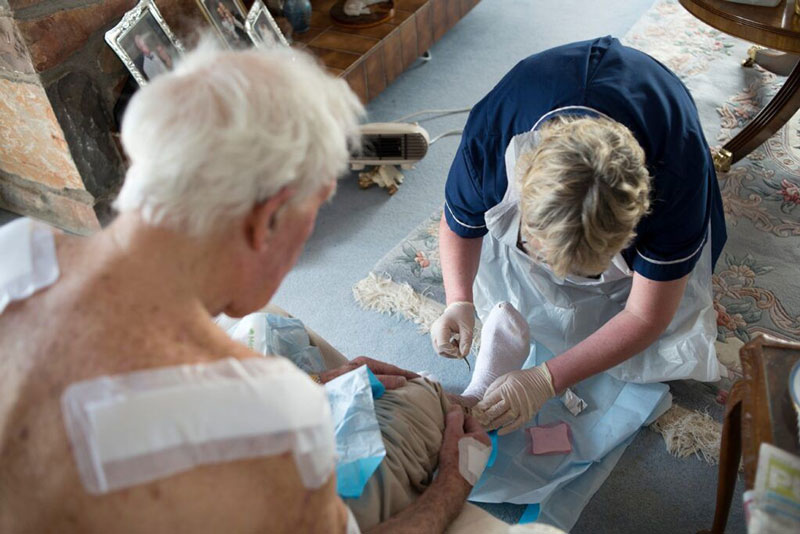
Wound Management for Seniors
As we age, our skin slowly loses its ability to regenerate itself. This is why a 5-year-old can scrape their knee without a trace of the injury a week later, but it may take older person weeks, if not months, to recover completely from an injury just as minor.
Properly caring for a wound is an important part of the healing process no matter what your age. However, for an elderly person, proper and effective wound care is critical. Mature skin is at a greater risk for complications that can arise when a wound is present. Here are a few of the reasons why wound management is so important as we age.
Proper Care Helps Avoid Chronic Wounds In Senior Citizens
A wound is a damage that occurs to tissue as the result of some sort of trauma. We tend to think of wounds as being open sores, such as a puncture wound or laceration – surgical or otherwise. Wounds can also be closed injuries, which are known as contusions. Regardless of the type of wound, there is a natural healing process that should take place.
This healing process involves the body’s natural defenses to kill harmful pathogens and regenerate the tissues. With mature skin, these processes can be slower to occur.

This presents the ideal environment for a chronic wound to form. A chronic wound is one that either heals very slowly or not at all. Chronic wounds increase the risk of infection, immobility, and decline in quality of life. Proper wound management ensures that wounds do not become infected and that the tissues are cared for properly to create an environment that is better suited for healing to occur.
Wound Management Reduces the Risk of Serious Infection
Because mature skin is naturally slower to heal, this presents an ideal breeding ground for pathogens if the area is not properly cared for. Seniors, who may not have the mobility, motor dexterity, or mental capacity to care for their own wounds are at a significantly heightened risk of infection, especially for deep wounds.
The consequences of infection can be very serious for an elderly person. Due to weakened immune systems, infections can spread rapidly in elderly persons and threaten the long-term health, or even the life, of the patient. A thorough, proactive approach to medical wound care reduces the risk of the injury resulting in poorer health outcomes for the patient.
Wound Management Goes Beyond Care at the Site
Many people associate wound management with the simple cleaning and bandaging of the wound. There are other factors involved in healing that wound care also addresses.
For instance, a wound management plan might also include exercise techniques to improve circulation to the injured area or a dietary plan that supports wound healing from a complementary nutritional standpoint.
Ability Nursing for Wound Management
Proper wound care is important not just because it shortens the duration of recovery, but also because it reduces the risk of complications that seriously affect a person’s health and wellbeing. At Ability Nursing, we offer wound management services that are aligned with your doctor’s plan for care. We take a professional, thorough and compassionate approach to wound care that promotes a faster recovery time so you can get on with your life. If you’re in need of wound management care, contact Ability Nursing today.
How do you treat an open wound in the elderly?
Here are some ways to impede infection in an elderly loved one with an open wound:

